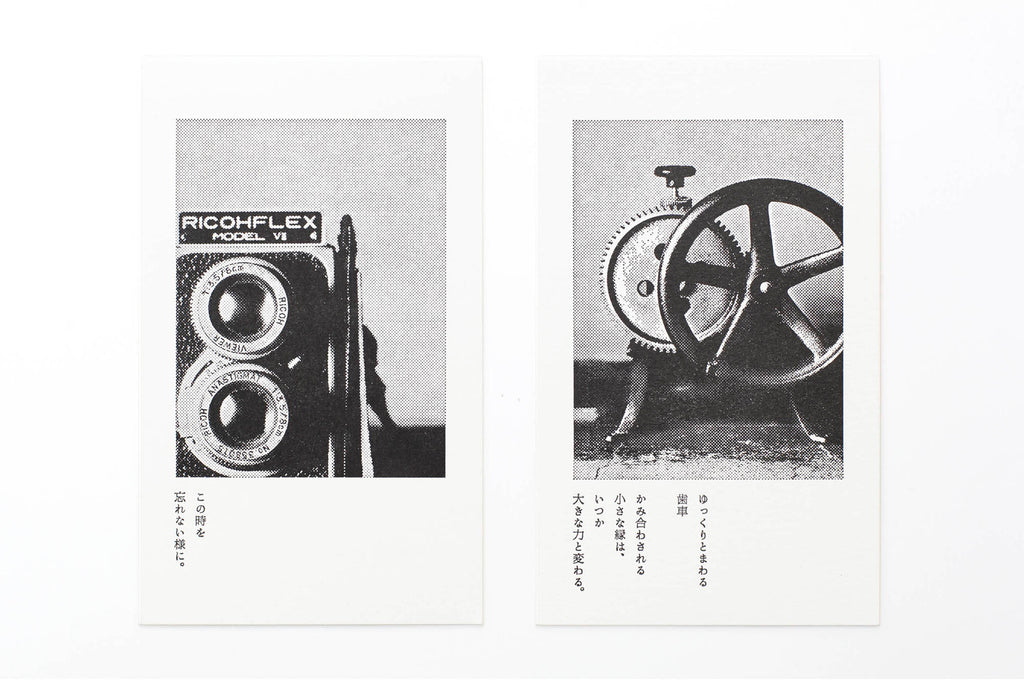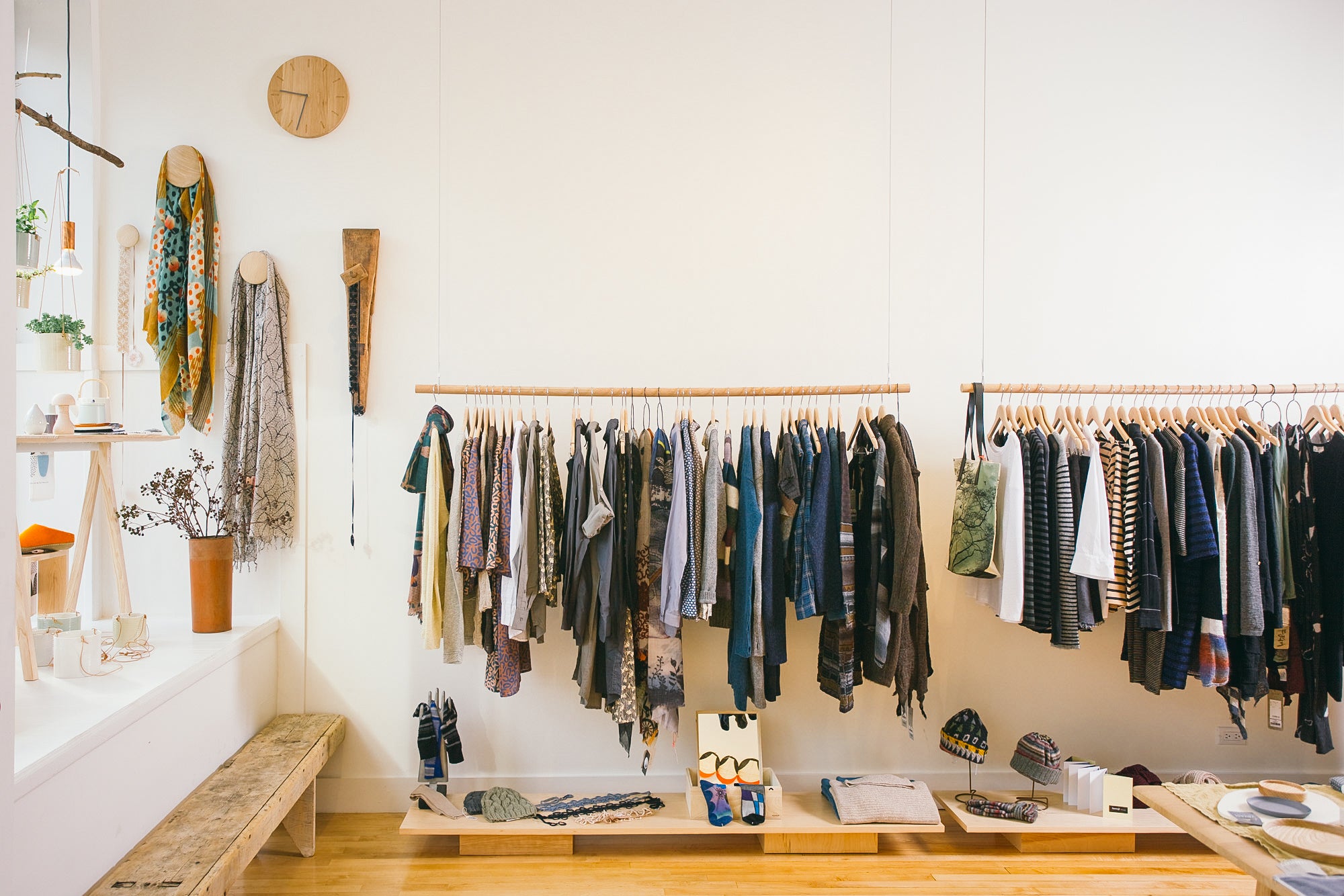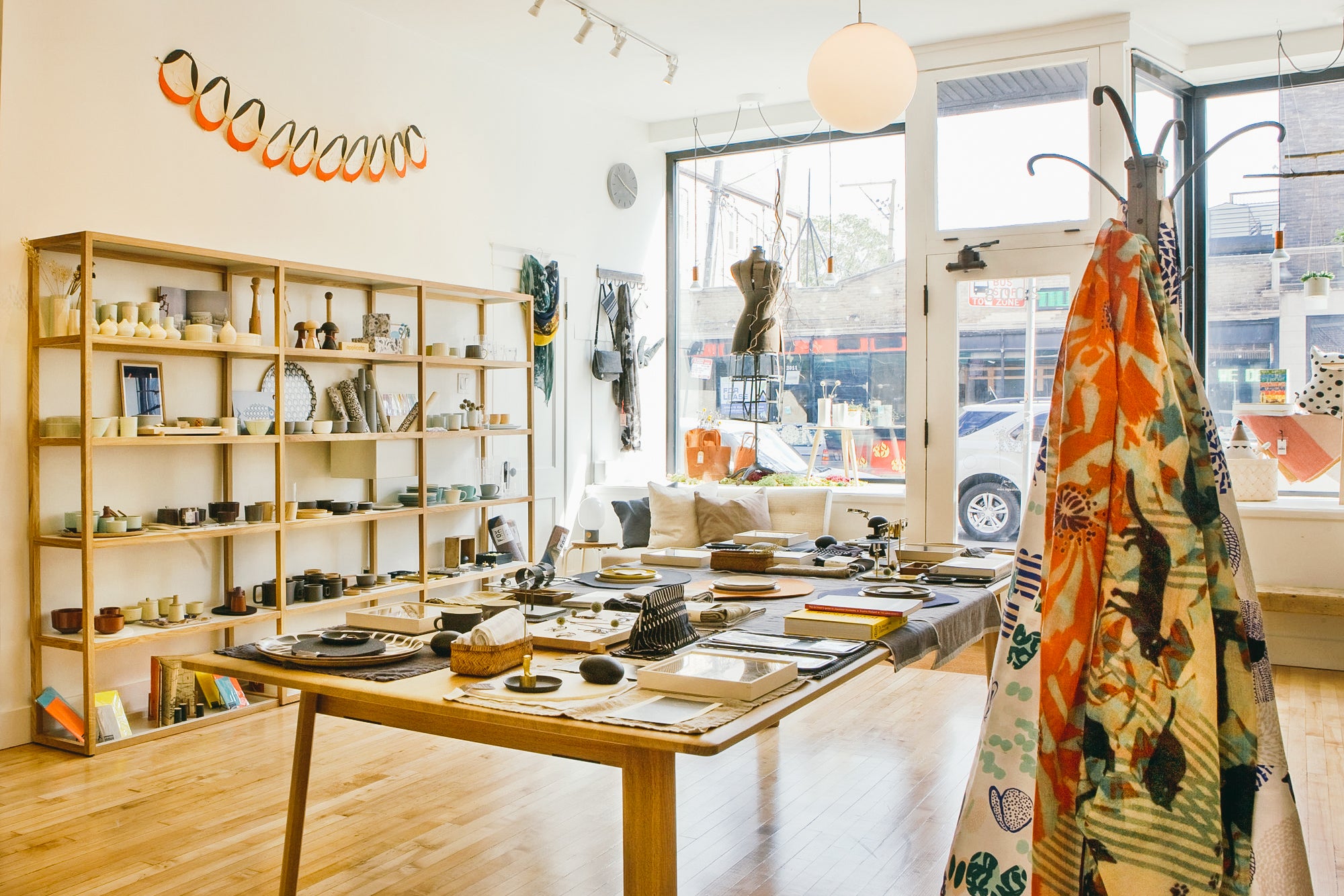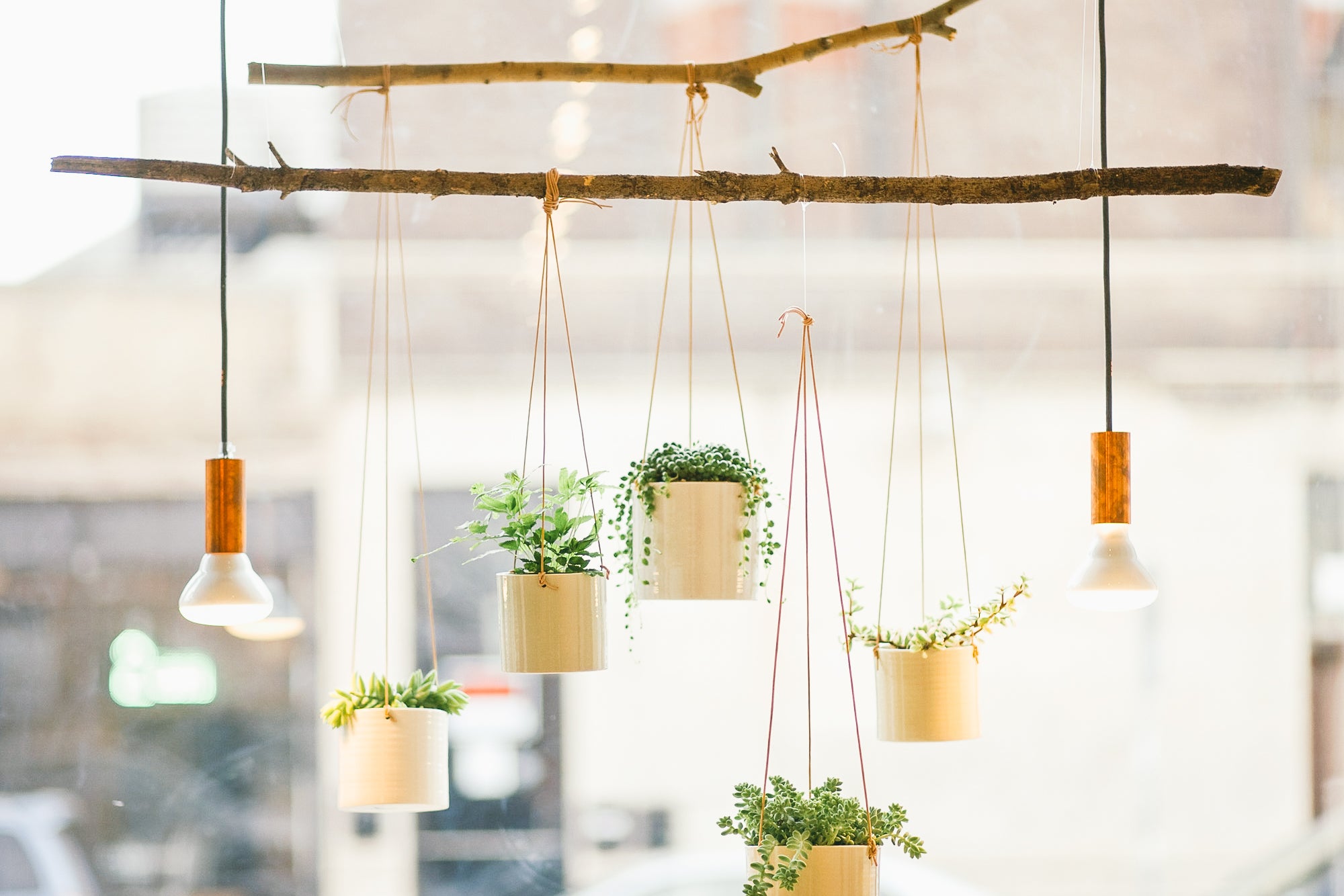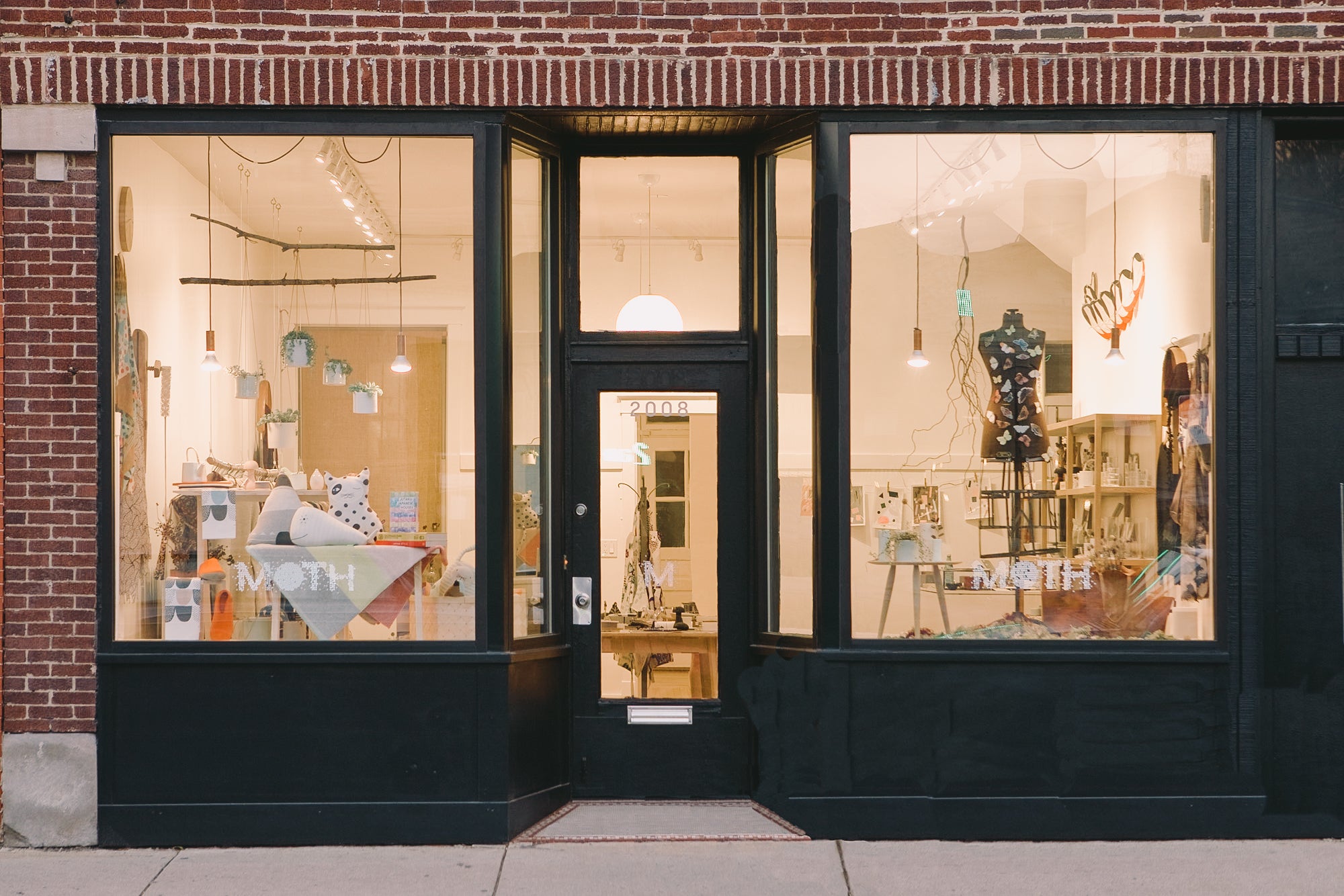Moth is launching a new series of posts, Designer Focus. Follow us as we introduce international designers and share their stories.

I came across the brand SyuRo during my first trip to Tokyo. A number of exquisitely made objects caught my eye at a small shop in Meguro, and in the process of picking them up and handling them, I came to be interested in tracking down the company that produced them.
My friend Noriko, who is the owner of the shop gallery Kumu, happened to be friends with the woman who founded SyuRo. Her name is Masuko Unayama and she has an amazing store, she told me. She highly recommended that I go check it out.
This is how I ended up in a nondescript part of town in Taito ward, in what is considered the Shitamachi of Tokyo. The Shitamachi isn’t trendy or new—many of the buildings are older, featuring bland 80s era architecture, and look slightly run down. However, what distinguishes this area is its long time association with small-scale manufacturing and wholesaling, and with businesses specializing in machinery parts, paper goods, textiles, etc.
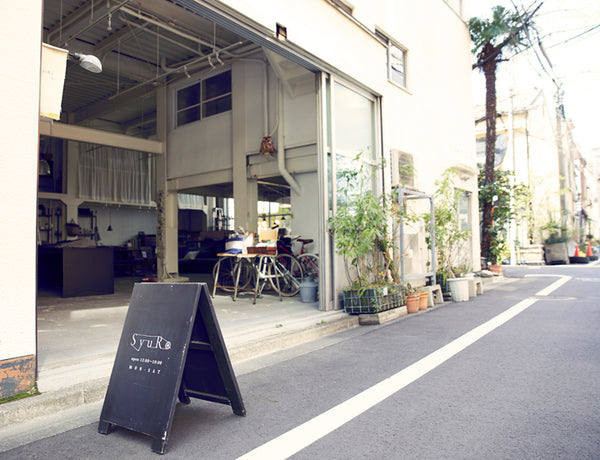
It is squarely within this context that the SyuRo gallery and shop were situated. I arrived to find an extraordinary space carved out of an otherwise nondescript building typical of the neighborhood. From the bones of the interior architecture, I could guess at its former function as a garage or manufacturing center. The entire space had been hollowed out, painted and re-designed. The goods were laid out simply and tidily on various shelves and pedestals, and paired with vintage Danish furniture pieces. The effect was surreal and beautiful, as though I had stepped into another world.

The manager greeted me warmly and I expressed my admiration for the store. She spoke minimal English and we had some trouble communicating, but she was very hospitable and brought me a cup of green tea. She guided me around the store, and although we did not get very far in our conversation that day, I have since become more familiar with SyuRo's vision.
SyuRo means palm tree in Japanese. The palm tree’s leaves open like welcoming hands, and it is in the spirit of this gesture that the company produces its handmade goods, keeping the culture of monozukuri alive. Monozukuri brings together the words for “things,” mono, and “making,” tsukuri, and the term encapsulates an ethos that generations of artisans have cultivated. It’s difficult to fully account for it here, but there is a strong work ethic and dedication to craft, a drive towards perfection, and a deep felt consideration of the object—a consideration of its use and wear over time, and of the lifetimes of technical know-how that go into producing it.

Masuko launched the company in 2006 and opened the shop in 2008. In its essence, SyuRo preserves traditional artisanal skills in an age of global mass production, while at the same time embracing innovation to meet modern needs. To do this, SyuRo sources quality materials and works closely with small-scale manufacturers from all over Japan and other parts of the world to create its leather goods, dishware, textiles, etc. Finally, it synthesizes these beautifully made items under one brand.

This all explains Masuko’s choice to open shop in Torigoe, home of the classic typesetters, canning factories, cloth wholesalers, and hardware stores. The store holds regular events that aim to deepen understanding of the manufacturing processes, and the website does a pretty thorough job of explaining its mission. While searching SyuRo related material on the web, I also came across this video, which vividly captures the look and feel of this brand.
I am very excited to carry SyuRo at Moth. When I submitted my initial order, I decided on the sekki ware or stoneware dishes with matching kitchen cloths, leather goods, metal canisters, wooden spoons, and a selection of personal care items including soap, lip balm, and candles. The items are all different of course, but their simple, elegant design and thoughtful construction serve to accentuate the quality of the materials used in creating them.

Sekki Ware
The sekki or stoneware dishes came out of an idea to serve food on stone or iron. To this end, the creators sourced iron-rich clay from the Mie and Aichi prefectures and fired it at high temperatures to create a hard, non-absorbent surface. This clay has been traditionally used to make teapots, but SyuRo used it to produce a line of tableware instead. The plates and bowls come in different sizes and three complementary colors. The unglazed dishes feature the natural color of the clay, a warm metallic grey, and the glazed dishes come in a matte white-grey and black. The black glaze is speckled with a slight metallic sheen and accumulates a rich patina over time.
Kitchen Cloths
The kitchen cloths complement the sekki ware. Produced in Hamamatsu and Niigata, they are made of 100% linen cloth. A lot of care goes into washing the cloth in order to achieve a feeling of warmth, and the dyeing process produces colors that match the glazes and earth colors of the sekki ware dishes. Finally, the cloths are carefully sewn at a factory that specializes in bed linens.
The size of the cloths is such that it can function as a dishrag, a hand towel or a lunch mat, and the thickness of the cloth (not too thin, not too thick!) is optimized for quick drying.

Canisters
The SyuRo canisters are made of copper, tin and brass. Each can has two lids; one on the inside that keeps the contents secure, and one on the outside that fits over the top half of the canister, creating a clean silhouette.
To paraphrase SyuRo, these canisters are made simply, and they are made to stand the test of time. They will gracefully age as the metals oxidize and the colors acquire depth. The joints will rust over time, which is an intended element of the design of these wares.
Artisans make them by hand and take care to create them with the minimum number of lines to ensure an even and beautiful form. The ease and precision with which the lids fit is the result of meticulous craftsmanship, and the scuffing or slight abrasion of the surface preps the metal for aging.

The form and function of these canisters are passed down from an earlier era in Japan’s history but persist to this day. They are used primarily to store tea, coffee and other dry goods, and many Japanese households will have a version of them in their cupboards.
Leather Goods
Similar considerations go into the production of leather goods. Made with Italian cattle, they are tanned with plant-derived tannin and polished to achieve a rich, lived-in texture. The protective oil applied to them ensures that the leather keeps over time and can be wiped clean of any scratches. The handmade quality of the items is evident in the organic lines and subtle details that comprise them—the colored threads that wind around the zipper tabs of the coin purses for example, or the thoughtful design of the wallet, which seems to anticipate the needs of its users.
Personal Care
SyuRo has also developed a line of aroma and skincare products that resonate with the five senses and promote everyday relaxation. This personal care line is named Vann Vesi Vand, which consists of the words for water in Finnish, Norwegian and Danish. Vann Vesi Vand draws inspiration from water’s healing and essential role in the home and expresses a desire to promote balance and a sense of wellbeing. The soaps, lip balms and candles are wonderfully aromatic, and the ingredients that go into producing them are of a very high quality, bringing nature to mind.
Photographs courtesy of mr. universe, CDC Webstore, 暮らしのゲンテン, Nohga Hotel, ARKET, Departures, Erika Raberg, Un Maison, OEN, and Rakuten.
